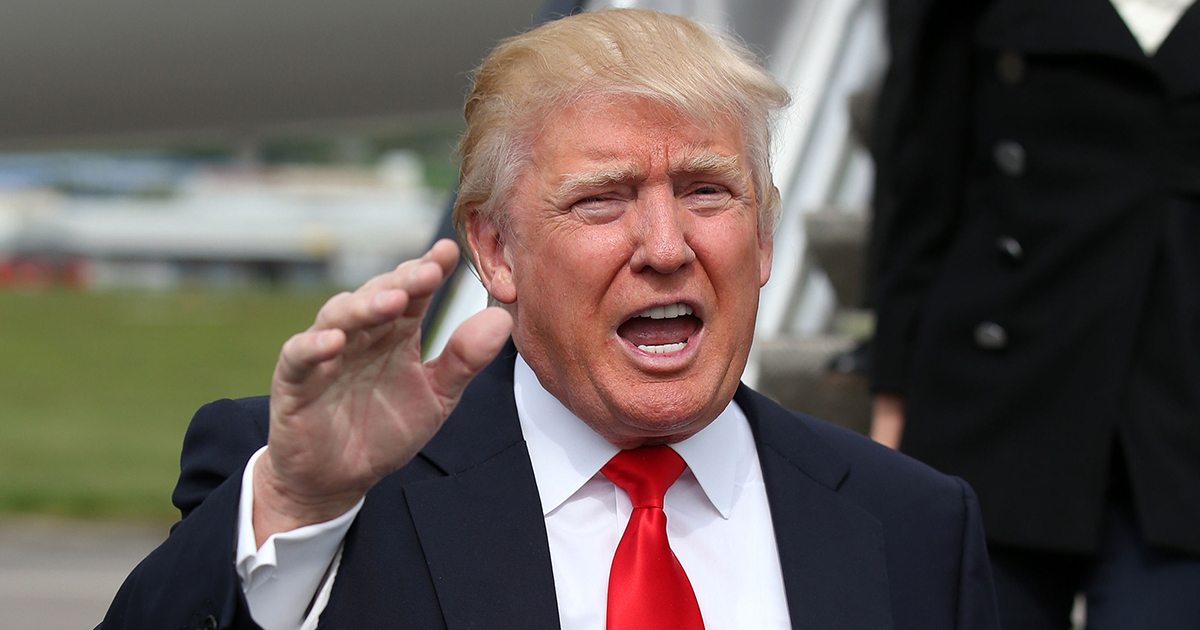Donald Trump May Have Already Decided on His First Major Cut as President

By:
President-elect Donald Trump's transition team is discussing plans to eliminate the National Endowments for the Arts and the Humanities, unnamed sources told the Hill.
The transition team hopes to shutter these agencies as part of a larger plan to reduce federal spending by $10.5 trillion over 10 years.
The proposal, reportedly discussed at a meeting on Thursday, would also slash the Community Oriented Policing Services and Violence Against Women grants, as well as gut various climate programs. The plan would privatize the Corporation for Public Broadcasting and includes significant cuts to the departments of Commerce, Energy, State, Justice, and Transportation, the report claims.
 AP/Andrew Milligan - apimages.com
AP/Andrew Milligan - apimages.com
"This is why Trump’s team is throwing out a huge proposed number of budget cuts," reporter Alex Shephard argued at The New Republic. "It is a Trojan Horse to cut programs they don’t like — public services, in other words — which they will claim was necessary to reduce the debt."
Despite reportedly planning to cut relatively meager federal agencies, Trump's national security plans are not so thrifty. His proposals include adding 90,000 new troops, increasing ships and aircrafts, and strengthening nuclear and missile defense systems — proposals that add up to an increase of $100 billion over what the U.S. already spends on defense, which is more than anyone else in the world, Foreign Policy Magazine reports.
As for the agencies Trump reportedly plans to slash: they're not talking.
“We're not speculating on what policies or decisions the new Administration may or may not choose to prioritize or pursue,” NEA Assistant Director of Public Affairs Victoria Hutter told ATTN: via email.
NEH told ATTN: much the same thing. “We are not going to speculate on the policies or priorities of the new Administration," NEH spokesperson Theola DeBose said in a statement.
Whatever the Trump team may be up to, now's a good time to look at what these two agencies actually do.
The National Endowments for the Arts and Humanities, independent federal agencies created in 1965, are not simply the stuff of the 'coastal liberal elites' and make significant contributions to people across the country.
The NEA already awarded $30 million in 2017 grants to individuals and nonprofits, the agency announced in December.
The money goes to four programs: Art Works, Art Works: Creativity Connects, Challenge America, and Creative Writing Fellowships. Art Works, which receives the bulk of the funding, will provide $26 million in 970 grants to community arts organizations and projects. The Creativity Connects grants, awarded to 37 projects partnering arts and non-arts organizations in 17 states. Challenge America specifically offers grants to underserved communities and people, while the NEA is awarding 37 individual writers $25,000 each.
The grants from the NEA (PDF) serve countless artists, non-artists and communities — from commissioning an Oregon multimedia project by artists with disabilities, to providing arts and entrepreneurship classes to South Dakotans. One recipient, a Buffalo, New York initiative, aims to bring poetry and community gardening to diverse communities.
NEA grants have funded a wide range of collaborative projects addressing criminal justice, nutrition and veterans issues. Partnering with the Department of Defense, the NEA expanded a Bethesda, Maryland program that provides access to therapeutic art programs to service members with traumatic brain injuries in October.
The recipients of humanities grants also span geographic, socioeconomic, and disciplinary spectrums.
The NEH granted $3 million to organizations bringing humanities programs to underserved communities and groups on December 14. Recipients include a program granting Louisville youth free passes to thirty cultural institutions and a program educating high school students at the Birmingham Civil Rights Institute.
The NEH gave 12 grants amounting to a total of $541,800 to research at Historically Black Colleges and Universities, Hispanic-Serving Institutions, and Tribal Colleges and Universities.
In a statement on the agency's website, NEH Chairman William D. Adams asserts: “Americans of every age, race, and economic status should be able to access the incredible opportunities that the humanities provide."
